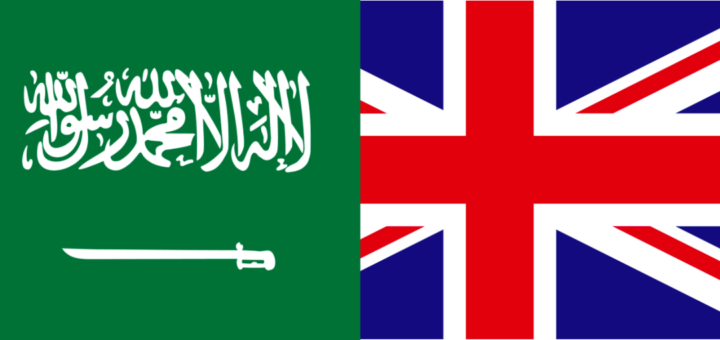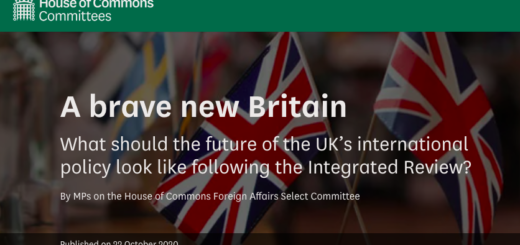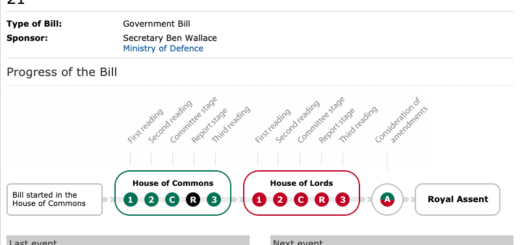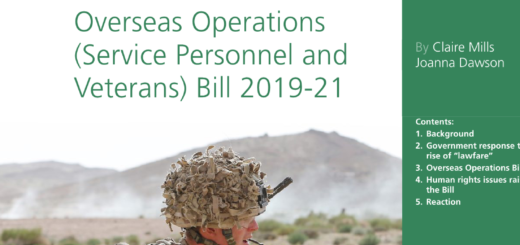On July 7, the Secretary of State for International Trade announced the UK would resume its arms sales to Saudi Arabia, stating “there is not a clear risk that the export of arms and military equipment to Saudi Arabia might be used in the commission of a serious violation of IHL [international humanitarian law].” This decision was made despite years of comprehensive documentation of repeated violations of IHL, including the bombing of schools, hospitals, weddings, funerals and health facilities.[i] Until recently, these actions had Saudi Arabia blacklisted by the UN for the killing of children.[ii]
The announcement follows a landmark judgement in June 2019, when the Court of Appeal ruled that UK arms exports to Saudi Arabia were irrational and unlawful. This decision was based on the government’s failure to assess whether the Saudi-led coalition had committed IHL violations in the past. The Court ruled that licences should not be granted when there was a clear risk that the weapons would be used to violate international law.
The Secretary of State for International Trade acknowledged that Saudi Arabia may have violated IHL numerous times: “It is noted … that the … possible violations of IHL occurred at different times, in different circumstances and for different reasons.” However, she determined, the lack of “patterns, trends or systemic weaknesses” in the compliance with IHL by the Coalition, is evidence that the risk of future violations is low. Considering the significant evidence of violations in the past, it is unclear how this assessment can be justified. The APPG on Drones is concerned that the Secretary’s assessment falls below the standard set out by the export control regime, which requires the government deny licences when “there is a clear risk that the items might be used in the commission of a serious violation of international humanitarian law.” As identified by Saferworld, “the absence of evidence of a ‘pattern’ is not equivalent to an absence of risk.”[iii] Similarly, there is concern that a blanket-like statement rejecting the presence of a clear risk that exported equipment will be used to violate IHL may misrepresent the Department’s obligation to assess risk on a case-by-case basis.[iv]
Undermining HMG’s commitment to international law and human rights
The Secretary of State’s announcement comes only days after the Government introduced sanctions against human rights abusers.[v] Introducing the regime in Parliament, Secretary of State for Foreign and Commonwealth Affairs, Dominic Raab, said sanctions would be taken against those who violate “the right to life”; the prohibition against “torture or cruel, inhuman or degrading treatment or punishment,” and would target “a wider network of perpetrators, including those who facilitate, incite, promote or support these crimes.”[vi] It also follows a number of Government announcements that underline its commitment to champion the international rules-based order - the Global Britain Strategy and the Integrated Defence, Security and Foreign Policy Review - of which adherence to international law is an integral part. The APPG on Drones has welcomed the Government’s Integrated Review, and encourages it to ensure that its stated commitment to international law is central across all foreign policy, including international trade.[vii]
Is the UK doing “everything it can to minimise the risk to human life and civilian infrastructure”?
The British Government repeatedly claims that the military does “everything it can to minimise the risk to human life and to civilian infrastructure”,[viii] and its processes and guidelines are “among the most robust in the world”.[ix] However, the UK’s ability to identify incidents of civilian casualties has been criticised.[x] Whereas the MOD claims to have caused only one civilian casualty over the five-year-long air campaign against ISIS in Iraq and Syria, dropping more than 4,400 bombs and missiles, many in urban areas, US investigations have found the UK may be responsible for more.[xi] Experts on air combat power have said that the UK’s processes are “not fit for purpose” and that for the MoD “the absence of evidence has been represented as being evidence of absence of civilian casualties”.[xii] Over the years, the APPG on Drones’ has frequently expressed concern about the ability of existing mechanisms to ensure the legality of UK assistance, including in the Group’s 2018 Inquiry Report.[xiii] This concern was reasserted by the Court of Appeal’s decision on the legality of arms exports to the Saudi-led Coalition.
It is paramount the Government provides an adequate assessment - beyond partners’ assurances - of the legality of a partners’ use of UK assistance. This has direct implications for the legality of the UK’s provision of military assistance, and ultimately the UK’s global responsibilities in upholding the principles of protecting civilians in conflict. From the Secretary’s statement, it is not clear whether the UK is now upholding its legal obligations, nor doing everything it can to protect civilians.
Protecting civilian populations is not just about complying with international law. It is also about trying to be better – identifying additional precautionary measures, exploring different operational approaches, and seeking to do everything possible. Robust policy and process is particularly important when working with and assisting partners – especially those with differing rules of engagement from our own.
The APPG on Drones urges the Government to take up the position as a global leader, and for the forthcoming UK Protection of Civilian strategy to represent the beginning of a dedicated process to institutionalise civilian protection as a cross-departmental, top line priority – both for our own operations and in partner assistance.
Endnotes
[i]https://www.caat.org.uk/campaigns/stop-arming-saudi/judicial-review; https://www.yemendataproject.org/;https://www.saferworld.org.uk/resources/news-and-analysis/post/885-statement-on-the-uk-government-decision-to-resume-licensing-arms-exports-to-saudi-arabia-; https://yemen.bellingcat.com/
[ii] Save the Children and Human Rights Watch have heavily criticised the UN Secretary General’s decision to drop Saudi Arabia from the list, calling it a “shocking decision”, and saying it was “ignoring the UN’s own evidence of continued grave violations against children”, respectively. The Watchlist on Children and Armed Conflict said that “by absolving the Saudi- and Emirati-led coalition of any responsibility for killing and maiming children in Yemen, the UN Secretary-General has left children vulnerable to further attacks.”https://bit.ly/396XJMH; ;https://twitter.com/airwars/status/1280512137207730177
[iii]https://www.saferworld.org.uk/resources/news-and-analysis/post/885-statement-on-the-uk-government-decision-to-resume-licensing-arms-exports-to-saudi-arabia-
[iv]https://www.saferworld.org.uk/resources/news-and-analysis/post/885-statement-on-the-uk-government-decision-to-resume-licensing-arms-exports-to-saudi-arabia-
[v]https://www.theyworkforyou.com/debates/?id=2020-07-06b.663.0#g663.4
[vi]“those with blood on their hands, the thugs of despots, the henchmen of dictators, will not be free to waltz into this country, to buy up property on the Kings Road, do their Christmas shopping in Knightsbridge or siphon dirty money through British banks or other financial institutions.” Dominic Raab, Secretary of State for Foreign Affairs, https://www.theyworkforyou.com/debates/?id=2020-07-06b.663.0#g663.4
[vii]APPG on Drones, Written evidence submitted by All-Party Parliamentary Group on Drones to the Defence Committee’s Inquiry into the Integrated Security, Defence and Foreign Policy Review, https://bit.ly/2LmOBbx
[viii]The court found that part of the US strikes were “not compatible with international law” and asserted that Germany must “do more” to prevent its territory from being used in unlawful strikes, https://www.parliament.uk/written-questions-answers-statements/written-question/commons/2018-10-17/180811
[ix]See for example HL3497, 7 December 2017. The Campaign Against the Arms Trade have created a blog specifically to track Government uses of this phrase.
[x] Airwars, Credibility gap: United Kingdom civilian harm assessments for the battles of Mosul and Raqqa, September 2018, available at: https://bit.ly/2ONRJz7; Jonathan Beale, Islamic State: US military says RAF airstrikes may have killed civilians, BBC, 16 March 2020, available at https://www.bbc.com/news/uk-51900898
[xi] https://www.bbc.com/news/uk-51900898
[xii] Chris Woods, Director of Airwars; Justin Bronk, research fellow specialising in combat airpower at the Royal United Services Institute
See https://www.bbc.com/news/uk-51900898
[xiii]APPG on Drones Inquiry Report: The UK’s Use of Drones: Working with Partners, https://bitly.com/; APPG on Drones, Statement on UK Assistance to Partners Following Ground-Breaking German Court Ruling, https://bit.ly/2GhFPKx





